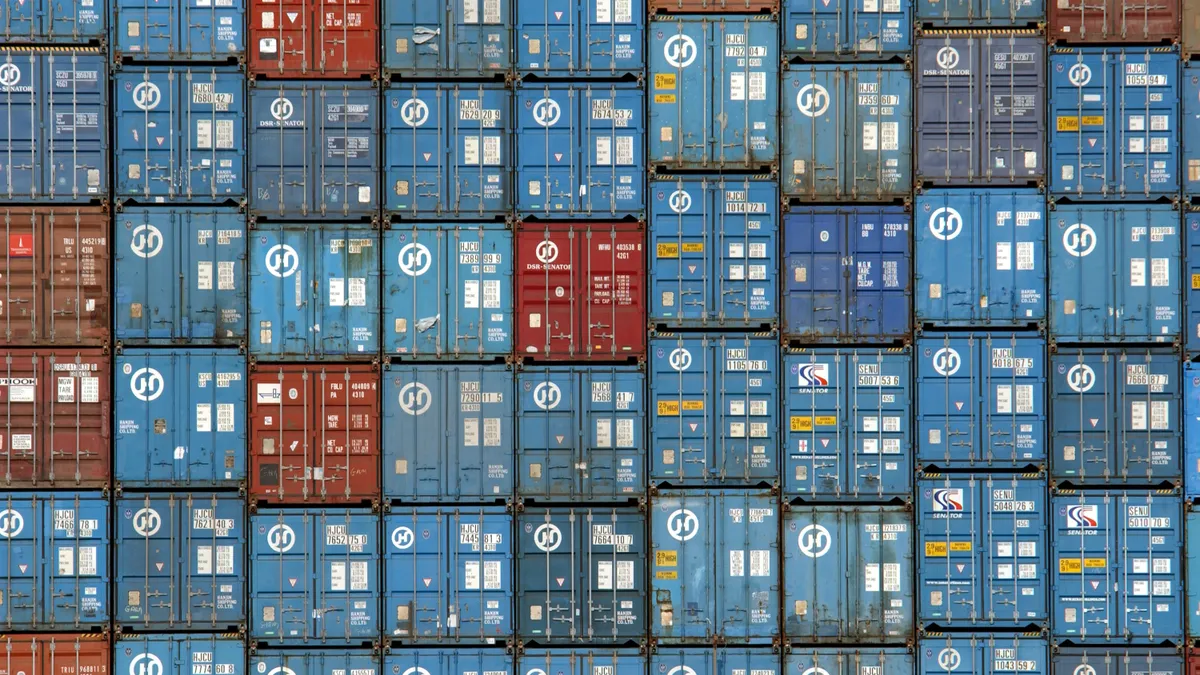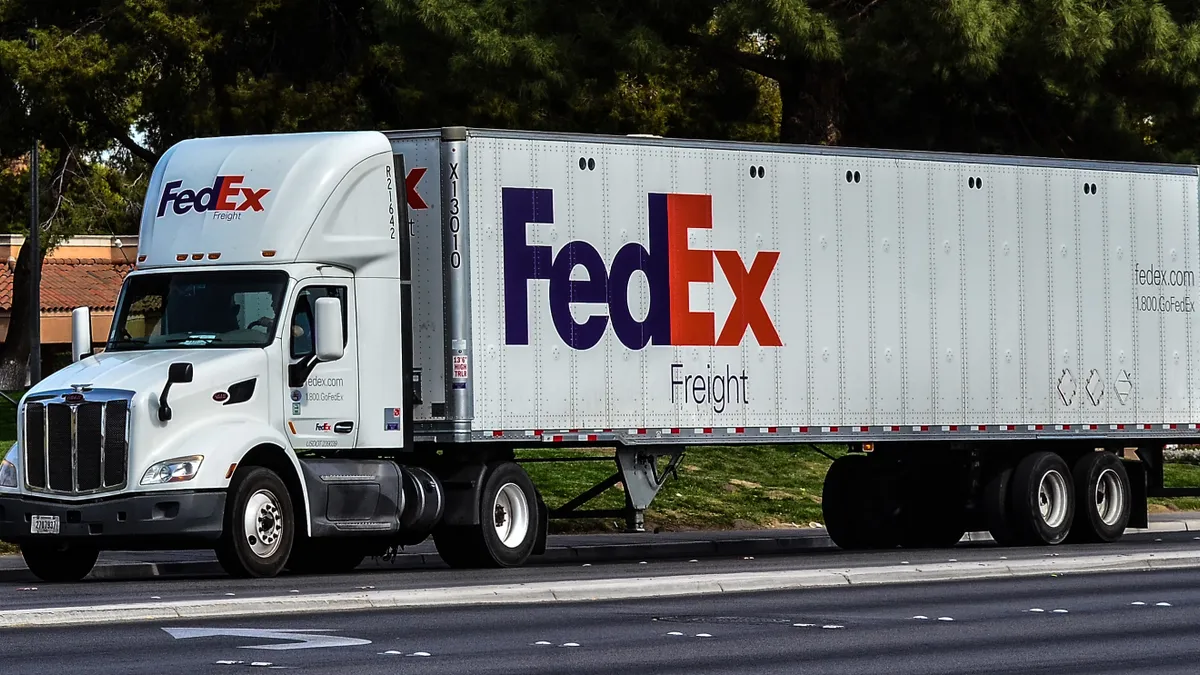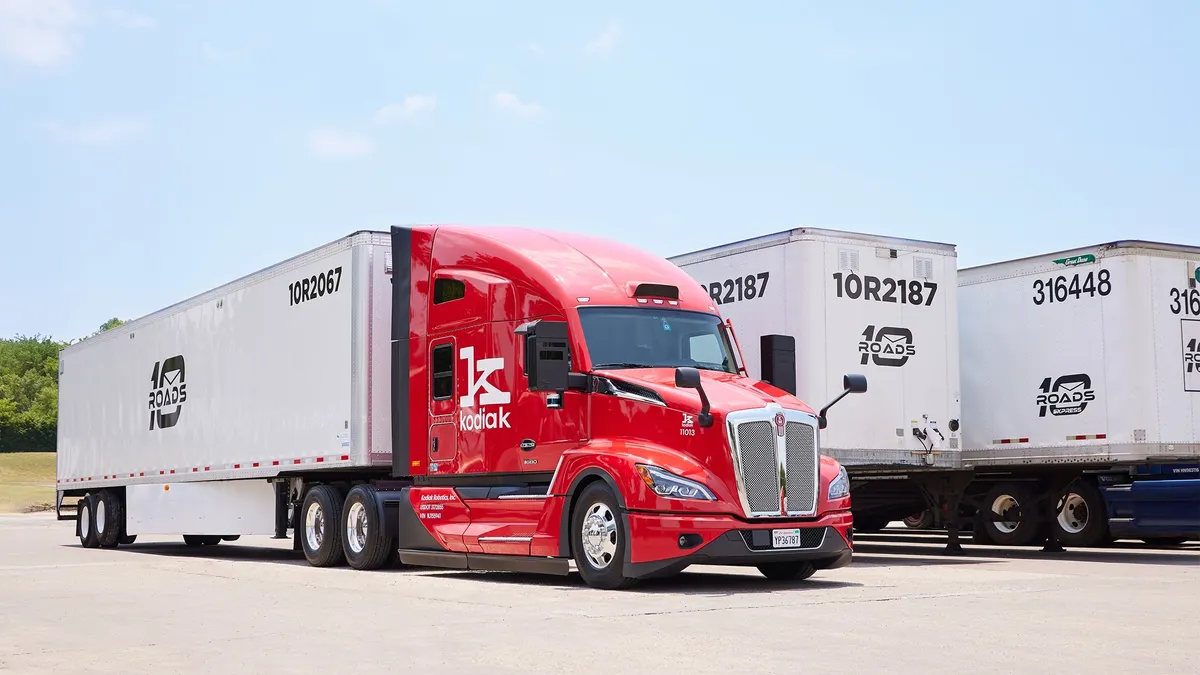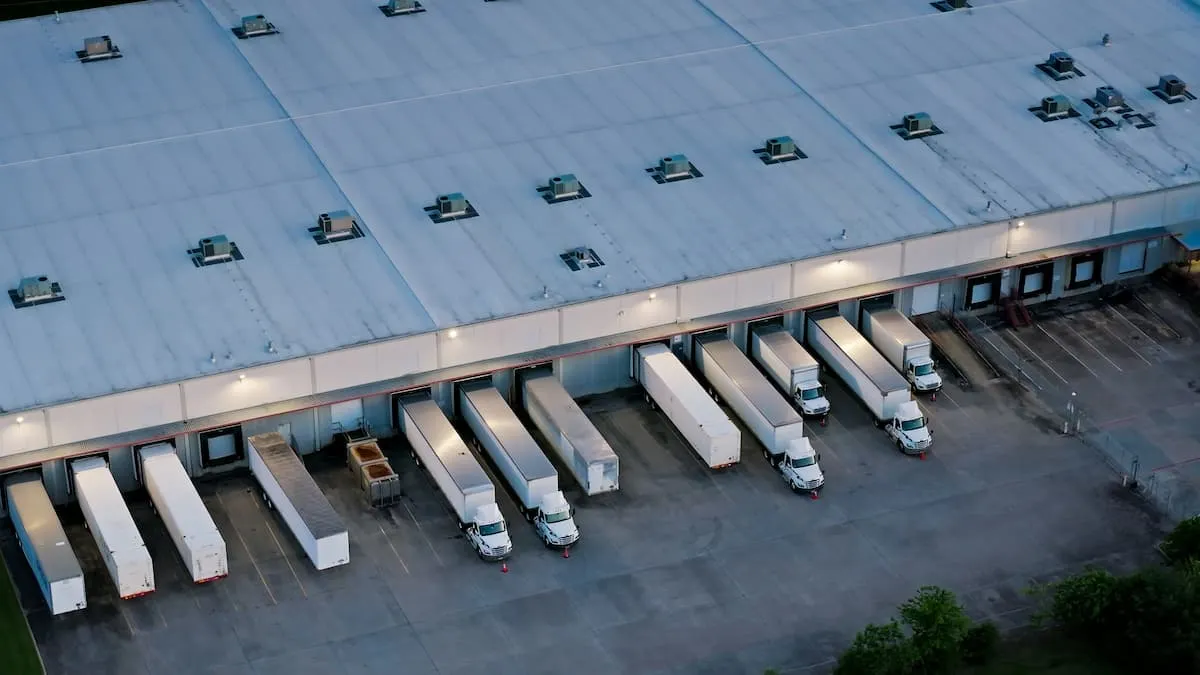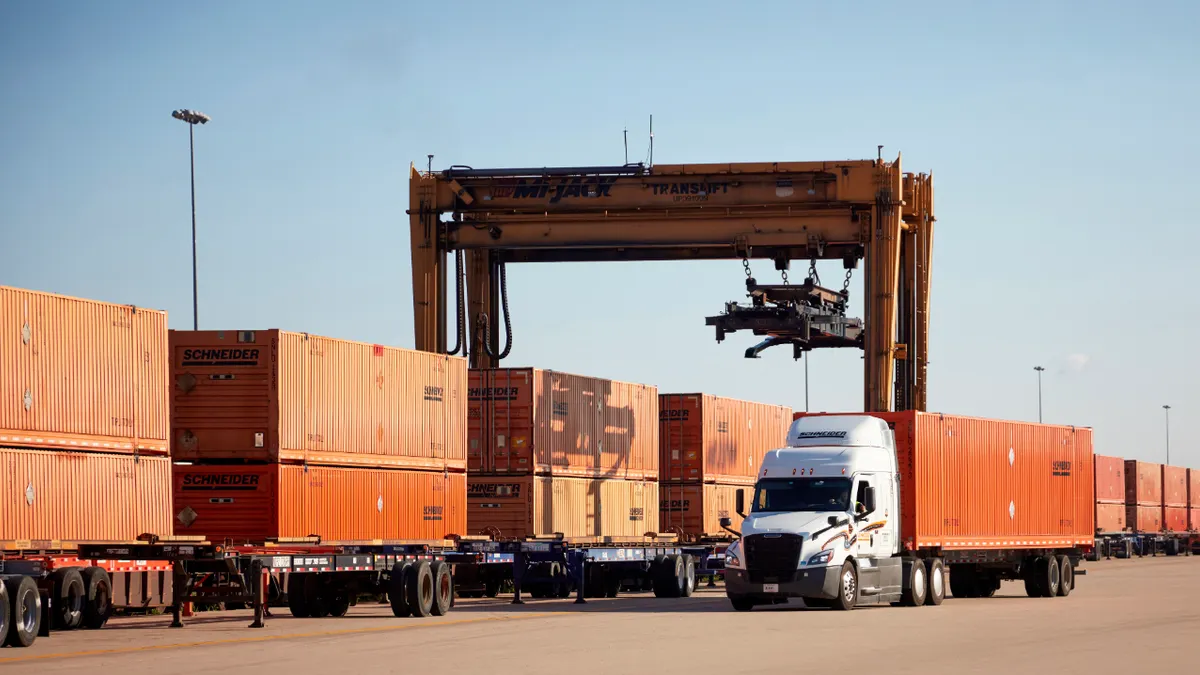California leased three armories, two fairgrounds and a former prison site to a private company last week as pop-up container yards to provide additional space for the state's overwhelmed ports and warehouses.
Chunker, whose national platform connects companies with available warehouse space, is adding the six sites to the five container yards it already operates. The state-owned sites could provide an additional 20,000 containers' worth of storage, said Brad Wright, Chunker CEO.
"That's a significant load off ports," Wright said. "It really frees things up, so it removes a lot of that congestion."
California Gov. Gavin Newsom said in a statement the additional storage lots are "a vital investment to help meet the needs of not only Californians, but our entire nation, and we'll continue advancing innovative solutions to address this global challenge."
Chunker adds 6 pop-up container yards
Pop-up container yards have sprung up around key port markets to alleviate congestion from surging imports. The White House announced in November that the Georgia Ports Authority would convert five existing inland facilities in Georgia and North Carolina into pop-ups. The Port of Oakland announced last month it would open a nearby pop-up to expedite truck turn times and free chassis for exporters.
Most goods eventually wind up in a warehouse, which was an advantage for Chunker in the warehouse marketplace company's bid to operate the container storage sites, Wright said. Cargo owners or 3PLs can store containers at a site while using Chunker's platform to find warehouse space for their contents.
"Since our core business was matching people with need with warehouses that had space, it was just a perfect match for us," Wright said.
The sites can store full containers or empties, and Chunker might designate certain lots for each in the future because full and empty boxes require different equipment for handling, Wright said.
The locations were chosen using search criteria provided by the Governor's Office of Business and Economic Development, after discussions with the relevant state agencies, said Jennifer Iida, spokesperson for the California Department of General Services, in an email.
The state's yearlong deal with Chunker, which includes a second-year option, is a revenue contract that requires the company to pay California 5% of its profits, Iida said. Wright declined to provide specifics on the financials.
The sites are the Lancaster Armory, the National Guard Armory Palmdale, the Army National Guard Armory in Stockton, the San Joaquin County Fairgrounds, the A.V. Fair and Events Center, and the closed Deuel Vocational Institution in San Joaquin County.
The reuse of the state-owned sites for storage reminded Chip Sockwell, vice president of product management at Logicbroker, of the reuse of empty office buildings and shuttered stores to store inventory.
"Same situation," Sockwell said in a phone interview with Supply Chain Dive. "I love the idea."
Chunker's five other storage sites, which have another 5,000 containers' worth of capacity, are located in Los Angeles, Los Alamitos, Santa Fe Springs, Signal Hill and Adelanto, according to a company spokesperson.
The round trip from the San Pedro Bay Ports to Lancaster, Palmdale or Adelanto could take a trucker 5 hours, said Ian Weiland, account manager for Junction Collaborative Transport, in a LinkedIn post.
"For those not in California who think that everything in California is so close due to inches on the map, the ask here is basically telling a truck in Philadelphia to use an empty container storage yard in Baltimore," Weiland wrote.
But Nick Mauro, senior manager of global logistics and trade compliance at Ichor Systems Inc., responded it would still be cost-effective for shippers.
"I would rather pay a trucker the appropriate round trip cost + 50% to do this than continue to pay obscene ocean freight rates," he wrote. "If this eases congestion and lowers ocean costs, yes. Still better than where we are."
The sites were chosen primarily for their available space. But the armories, in particular, are well-suited as a secure site for container storage, Wright said.
"Their most useful feature is they have people in them with lots of guns," Wright said. "And that makes it really unattractive for people to go steal stuff out of those containers. They're highly secure."
Editor's note: This story was first published in our Logistics Weekly newsletter. Sign up here.



